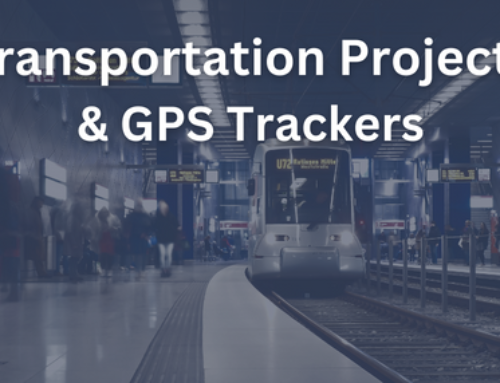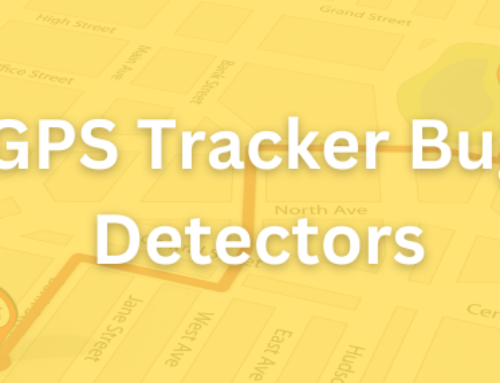In today’s digital era, technological advancements have revolutionized the way crime is fought and criminals are apprehended. One such technological tool that has become indispensable for law enforcement is GPS trackers in police cars. These devices have proved to be a game-changer, enabling police officers to efficiently track stolen vehicles, locate missing persons, and swiftly respond to emergency situations.
With GPS trackers, police departments can have real-time access to the exact location of their vehicles, providing crucial data and enhancing their ability to combat crime effectively. The ability to monitor the movements of police cars through GPS technology ensures a quicker response time to emergencies and a higher chance of apprehending criminals in real time.
Additionally, the integration of GPS trackers with other law enforcement technologies has the potential to streamline investigations further. By analyzing GPS data, investigators can establish valuable connections, identify patterns, and gather critical evidence to solve crimes swiftly and accurately.
As technology continues to advance, the role of GPS trackers in police work will only become more critical. These devices empower law enforcement agencies to operate efficiently and stay one step ahead of criminals in the never-ending battle against crime.
Benefits of using GPS trackers in law enforcement
In today’s digital era, technological advancements have revolutionized the way crime is fought and criminals are apprehended. One such technological tool that has become indispensable for law enforcement is GPS trackers in police cars. These devices have proved to be a game-changer, enabling police officers to efficiently track stolen vehicles, locate missing persons, and swiftly respond to emergency situations.
How GPS trackers aid in crime prevention and investigation
The integration of GPS trackers in police cars brings numerous benefits to law enforcement agencies. Firstly, these devices provide real-time access to the exact location of police vehicles, allowing for better coordination and resource allocation. With the ability to monitor the movements of police cars through GPS technology, response times to emergencies can be significantly reduced, ultimately leading to a higher chance of apprehending criminals in real time.
Furthermore, GPS trackers aid in crime prevention by acting as a deterrent. The presence of these devices in police cars serves as a warning to potential criminals, discouraging them from engaging in illegal activities. Additionally, the knowledge that their movements are being tracked can prevent police officers from engaging in misconduct, serving as an accountability measure.
Lastly, the data collected from GPS trackers can be analyzed to identify crime hotspots and patterns, enabling law enforcement agencies to allocate their resources more effectively. By understanding where and when crimes are likely to occur, police departments can proactively deploy their personnel, resulting in a more efficient and targeted approach to crime prevention.
Real-life examples of GPS tracker success stories in policing
GPS trackers play a vital role in crime prevention and investigation by providing law enforcement agencies with accurate and real-time location data. This information can be used to track stolen vehicles and recover them quickly, minimizing financial losses for victims. Moreover, GPS trackers can assist in locating missing persons, particularly in cases where time is of the essence, such as kidnappings or elderly individuals with medical conditions.
In criminal investigations, GPS trackers offer valuable insights into the movements of suspects and their potential involvement in criminal activities. By analyzing the data collected from these devices, investigators can establish connections between suspects, victims, and crime scenes. This information can be crucial in building a solid case and gathering evidence to support prosecutions.
GPS trackers also contribute to the safety of law enforcement personnel. In high-risk situations, such as hostage situations or active shooter incidents, the ability to track the location of police cars ensures that backups can be dispatched promptly and resources can be allocated efficiently. This capability improves officer safety and enhances their ability to respond effectively to emergencies.
Challenges and limitations of using GPS trackers in police cars

The effectiveness of GPS trackers in law enforcement is evident from numerous success stories. One notable example is the case of a serial car thief who had been evading capture for months. After equipping police vehicles with GPS trackers, law enforcement agencies were able to track the suspect’s movements and apprehend him red-handed while attempting to steal another vehicle. This not only led to the recovery of multiple stolen cars but also helped solve several related crimes.
In another instance, a missing child was located within hours, thanks to the use of GPS trackers in police cars. The child had wandered away from home and was unable to communicate their whereabouts. However, by utilizing the real-time location data provided by the GPS tracker, law enforcement was able to locate the child quickly and reunite them with their family.
These examples highlight the significant impact that GPS trackers can have on law enforcement efforts, demonstrating their effectiveness in both crime prevention and investigation.
Legal considerations and privacy concerns surrounding GPS tracking in law enforcement
While GPS trackers offer numerous benefits to law enforcement, there are also challenges and limitations associated with their usage. One primary concern is the potential for technical malfunctions or signal disruptions. In areas with poor GPS signal coverage or in situations where criminals attempt to jam the signals, the effectiveness of the trackers may be compromised.
Another challenge is the maintenance and management of the vast amount of data generated by GPS trackers. Law enforcement agencies must have robust systems in place to handle and analyze this data effectively. Additionally, privacy concerns may arise when using GPS trackers, as they can potentially track the movements of innocent individuals who happen to be in the vicinity of a police car.
Furthermore, GPS trackers are not foolproof and can be tampered with or disabled by tech-savvy criminals. This poses a risk to the reliability and accuracy of the data collected. Law enforcement agencies must stay vigilant and ensure that their GPS trackers are secure and tamper-proof.
Best practices for implementing and managing GPS trackers in police departments
The use of GPS trackers in law enforcement raises important legal and privacy considerations. The legality of tracking individuals without their consent or a warrant varies between jurisdictions. In some cases, law enforcement agencies may require specific authorization or court orders to deploy GPS trackers for surveillance purposes.
Privacy concerns arise when GPS trackers are used to monitor the movements of individuals who are not suspected of any criminal activity. Striking a balance between public safety and personal privacy is essential, and legislation surrounding GPS tracking must provide clear guidelines to ensure the lawful and ethical use of these devices.
Moreover, data protection measures must be implemented to safeguard the information collected by GPS trackers. Law enforcement agencies should establish strict protocols to ensure that only authorized personnel have access to this data and that it is stored securely.
Training and education for police officers on using GPS trackers effectively
To maximize the benefits of GPS trackers, law enforcement agencies should follow best practices when implementing and managing these devices. Firstly, thorough training and education should be provided to police officers on the proper use of GPS trackers. This includes understanding the legal and ethical considerations surrounding their usage, as well as the technical aspects of operating the devices.
Additionally, regular maintenance and testing of GPS trackers are crucial to ensure their reliability. Law enforcement agencies should establish protocols for routine checks and ensure that any issues or malfunctions are promptly addressed. Furthermore, proper data management practices should be implemented to handle the large amount of data generated by GPS trackers effectively.
Collaboration with technology providers and sharing best practices with other law enforcement agencies can also be beneficial. By learning from each other’s experiences and leveraging the expertise of industry professionals, police departments can optimize their use of GPS trackers and stay up-to-date with the latest advancements in technology.
The future of GPS tracking technology in crime fighting
To ensure the effective use of GPS trackers, comprehensive training and education programs should be developed for police officers. This training should cover various aspects, including the legal and ethical considerations surrounding the use of GPS trackers, the technical aspects of operating the devices, and the proper handling and analysis of the data collected.
Officers should be trained to understand the limitations and potential challenges associated with GPS tracking, as well as the importance of adhering to privacy laws and regulations. Additionally, training should focus on the integration of GPS trackers with other law enforcement technologies and how to leverage the data collected for effective crime prevention and investigation.
By providing officers with the necessary knowledge and skills to utilize GPS trackers effectively, law enforcement agencies can maximize the potential of these devices and ensure their seamless integration into daily operations.




